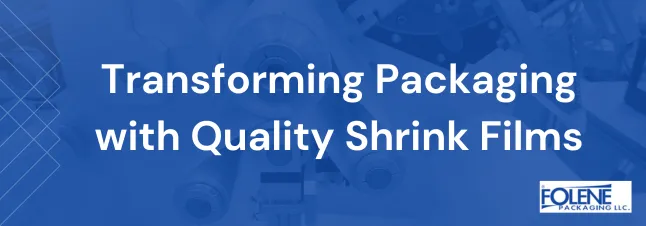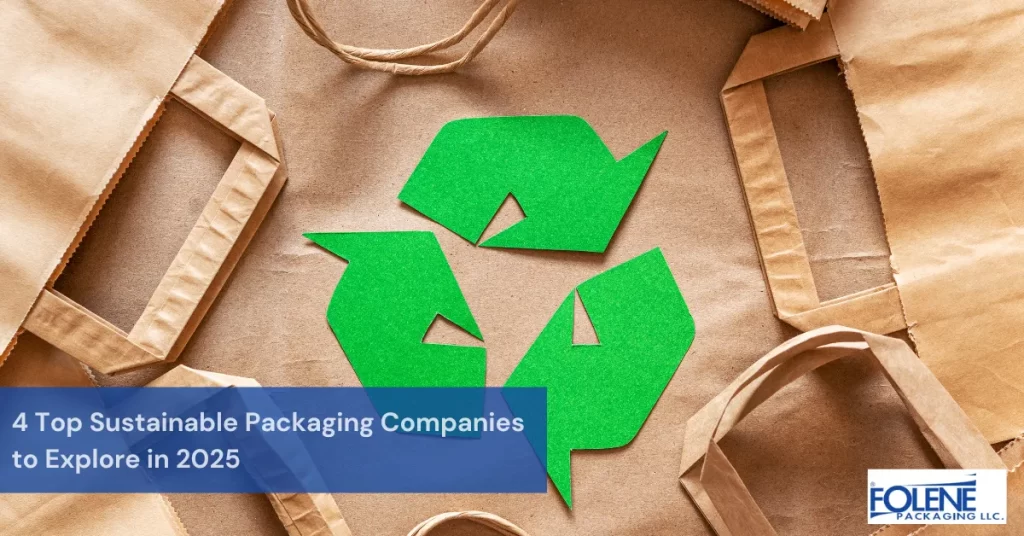
Introduction to Sustainable Packaging
Sustainable packaging refers to the use of packaging solutions that have a minimal environmental impact throughout their entire lifecycle, from production to disposal. This approach to packaging is crucial in reducing waste, conserving natural resources, and mitigating the effects of climate change. The demand for sustainable packaging has increased significantly in recent years, driven by growing consumer awareness of environmental issues and the need for more eco-friendly packaging solutions. By adopting sustainable packaging, companies can not only reduce their environmental footprint but also meet the expectations of eco-conscious consumers and comply with increasingly stringent regulations. Folene Packaging presents a roundup of notable sustainable packaging companies that are rising to the sustainability challenge.
History of Sustainable Packaging
The history of sustainable packaging dates back to the early 20th century, when companies began to explore alternative packaging materials and designs that could reduce waste and minimize environmental impact. However, it wasn’t until the 1990s that sustainable packaging started to gain mainstream attention, with the introduction of recyclable packaging materials and the development of compostable packaging solutions. Since then, the sustainable packaging industry has experienced rapid growth, with companies investing heavily in research and development to create innovative and eco-friendly packaging solutions. This evolution has been driven by both consumer demand and regulatory pressures, leading to a more sustainable approach to packaging across various industries.
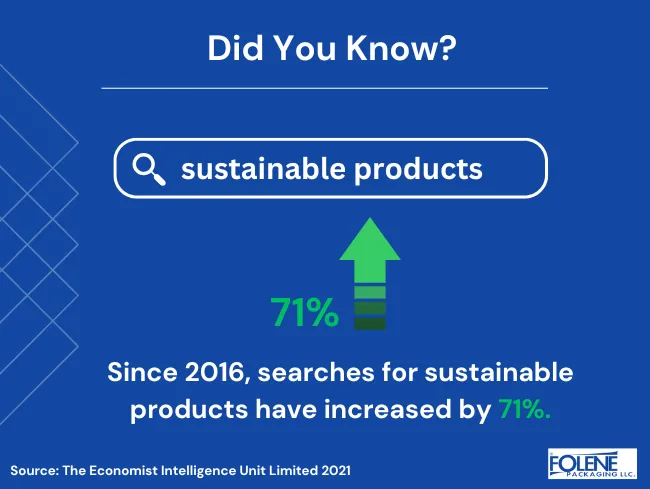
Current State of Sustainable Packaging
The current state of sustainable packaging is characterized by a growing demand for eco-friendly packaging solutions, driven by consumer pressure and government regulations. Companies are now expected to prioritize sustainability in their packaging designs, using materials that are recyclable, biodegradable, or compostable. The use of plastic packaging, in particular, has come under scrutiny, with many companies opting for alternative materials such as paper, cardboard, or bioplastics. The development of new packaging technologies, such as smart packaging and minimal packaging, is also transforming the industry, enabling companies to reduce waste and minimize their environmental footprint. As a result, the packaging industry is seeing a significant shift towards more sustainable practices and materials.
Future of Sustainable Packaging
The future of sustainable packaging is expected to be shaped by emerging trends and technologies, including the use of renewable energy sources, biodegradable materials, and circular economy principles. Companies will need to prioritize sustainability in their packaging designs, using materials that are recyclable, reusable, or compostable. The development of new packaging solutions, such as edible packaging and packaging made from plant-based materials, is also expected to play a crucial role in reducing waste and minimizing environmental impact. As consumers become increasingly aware of environmental issues, companies will need to adapt to changing demand and prioritize sustainability in their packaging solutions. This shift towards more sustainable packaging practices will be essential in promoting a more sustainable future for the packaging industry.
Why Sustainable Packaging is a Top Concern
Individuals, businesses, and governments alike are increasingly concerned about consumers’ environmental impact. Curbside recyclable packaging solutions that can be easily recycled at home contribute to broader environmental goals. Disposable packaging, while a necessary component of our global supply chain, contributes heavily to plastic pollution. Some outstanding sustainable packaging companies are working towards finding viable alternative solutions to meet the growing consumer demand for eco-friendly packaging materials.
Benefits of Sustainable Packaging
Sustainable packaging offers numerous environmental benefits, including reduced waste and minimal environmental impact, which are leading concerns for consumers. Eco-friendly products that reduce environmental impact and meet the growing demand from environmentally-conscious consumers are becoming increasingly available. Eco-friendly packaging solutions provide additional economic and social benefits for businesses, such as reduced packaging costs, improved brand reputation, and increased customer loyalty.
Defining Sustainability in Packaging
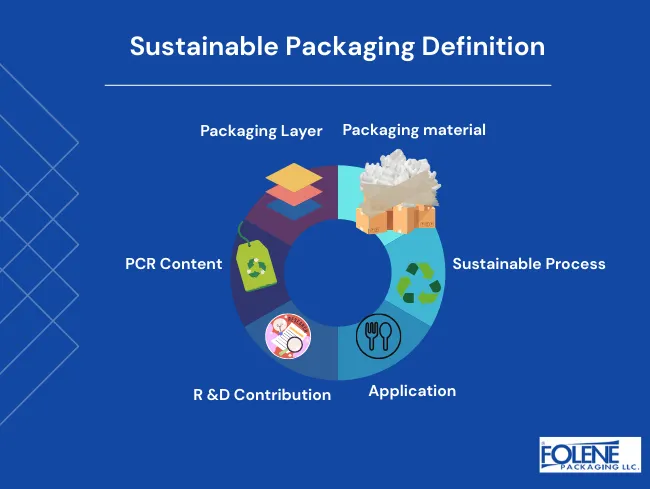
Companies can be sustainable in one or more of several areas:
Packaging material (plastic, paper, metal, glass).
Sustainable Process (recycled, reusable, degradable).
Application (food and beverage, personal care packaging)
Packaging sustainability R&D contributions
Use of post-consumer recycled content
Use of recycled materials in packaging solutions
Here are some of the leading companies in sustainable packaging innovative solutions:
Ball Corporation
Ball Corporation, known for Ball Corporation’s long-standing reputation for innovative and sustainable packaging solutions, is a major supplier for aluminum and glass packaging in the food and beverage industry. Eye-catching sustainable social initiatives, such as the highly recyclable aluminum drinking cup for sports event concessionaires, support social sustainability efforts, seeking to affect environmental changes through social action. Ball Corporation’s promotion of recyclable packaging materials is setting a new standard for the packaging industry.
Smurfit Kappa
A leader in the paper packaging industry, Smurfit Kappa is constantly innovating corrugated carton, board, and other paper-based packaging solutions for the ecommerce industry and retail, and both consumer and industrial applications. Sustainably sourced paper packaging can be a good fit for many packaging applications, although it is not suitable for all industries, particularly medical and surgical packaging.

NatureWorks
This company focuses on using alternative and renewable bio materials for packaging sources, including renewable resources like sugar cane, beets, and corn. These out-of-the-box alternative solutions are innovating the industry and redefining how manufacturers approach packaging materials.
Folene Packaging
The alternative manufacturer for flexible packaging films, Folene Packaging’s Ecolene® range of films include 100% biodegradable options as well as high PCR-content flexible films. Folene Packaging focuses on innovating its production processes to create eco-friendly packaging alternatives and minimize its carbon footprint. As a proud member of the Sustainable Packaging Coalition, Folene Packaging is committed to providing companies with a range of high-quality, high-performance flexible packaging film solutions that are gentle on the environment.
Emerging Sustainable Consumer Packaging Trends
Current trends in consumer packaging include increases in recyclable packaging materials and compostable packaging options. New technology, such as OHMEGA® Conductive Ink + Touchcode™, is introducing innovative solutions that enhance brand protection and improve customer experiences. Future trends are expected to focus on innovative packaging solutions, such as smart packaging and end-to-end entire packaging solutions.
Compostable Packaging Options
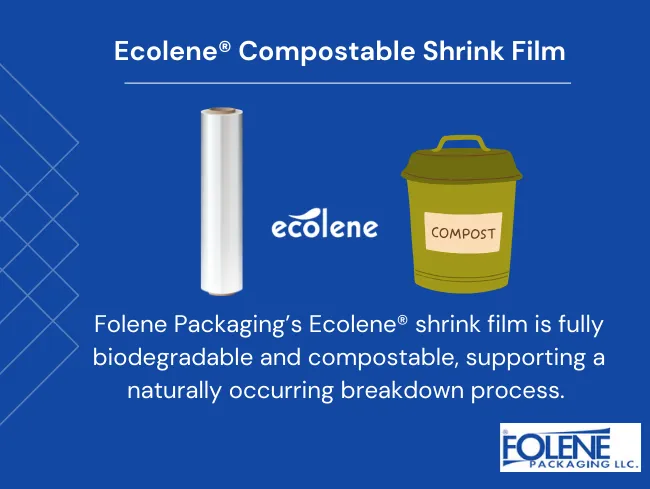
Compostable packaging refers to packaging materials that can be broken down into natural elements, such as soil, water, and carbon dioxide, through a process of composting. Compostable packaging options are becoming increasingly popular, as companies seek to reduce their environmental footprint and minimize waste. Compostable packaging materials include bioplastics, paper, and cardboard, which can be composted at home or in industrial composting facilities. These materials offer a sustainable alternative to traditional packaging, providing an eco-friendly solution that aligns with the growing demand for sustainable packaging options.
Benefits of Compostable Packaging
The benefits of compostable packaging are numerous, including reduced waste, minimized environmental impact, and improved brand reputation. Compostable packaging can help companies reduce their carbon footprint, as it eliminates the need for fossil-based materials and reduces greenhouse gas emissions. Compostable packaging can also improve the unboxing experience, as it provides a unique and eco-friendly packaging solution that resonates with consumers. Additionally, compostable packaging can help companies comply with regulations and meet sustainability goals, reducing the risk of non-compliance and reputational damage. Overall, compostable packaging is a crucial component of sustainable packaging solutions, enabling companies to reduce waste, minimize environmental impact, and promote a more sustainable future.
Top Sustainable Packaging Companies: In Conclusion
In summary, the companies highlighted—Ball Corporation, Smurfit Kappa, NatureWorks, and Folene Packaging—demonstrate a strong commitment to sustainability through innovative practices and eco-friendly solutions. From Ball Corporation’s promotion of recyclable aluminum to Smurfit Kappa’s advanced paper-based packaging, and NatureWorks’ focus on renewable bio materials, each company is contributing to a greener future.
Folene Packaging stands out with its Ecolene® range, offering biodegradable and high PCR-content options that cater to diverse flexible packaging needs. If you’re looking to elevate your brand’s sustainability efforts and make a positive environmental impact, contact Folene Packaging today to explore their range of sustainable flexible packaging solutions and discover how they can be your trusted partner in supporting reliable and eco-friendly practices.
